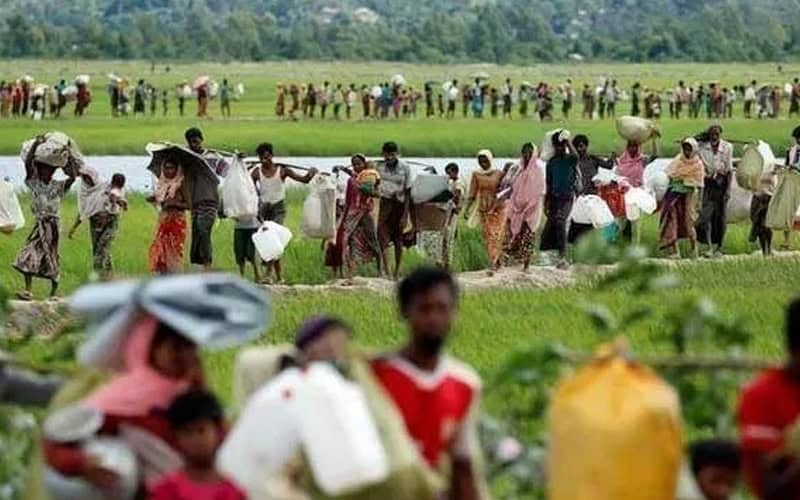Kuala Lumpur: Forty-one Rohingya were found on a Malaysian beach Monday, police said, the second group of the Muslim minority to arrive in the country within weeks, stoking fears of a looming exodus.
Many Rohingya have been seeking in recent weeks to leave by sea from Bangladesh, where they live in squalid refugee camps after fleeing their mostly Buddhist homeland Myanmar, before the monsoon season starts in earnest.
Security forces have prevented hundreds from departing for Malaysia with people smugglers on fishing boats. But last month 34 Rohingya arrived in the northern Malaysian state of Perlis, the first group believed to have landed in the country in almost year.
The latest batch, which consisted entirely of men, were found Monday on the same beach as the previous boatload, local police chief Noor Mushar Mohamad told AFP.
“This is definitely the work of human smuggling syndicates working with local syndicates,” he said.
“I fear there could be more Rohingya arrivals unless maritime enforcement agencies step up patrols urgently.”
Noor Mushar said initial investigations indicated they could have travelled in a large boat before being transferred to smaller craft by local criminal gangs and ferried ashore. They have been handed over to immigration authorities, he said.
It was not clear whether they had departed from Bangladesh or Myanmar, or when they had arrived.
About 740,000 Rohingya fled Myanmar for Bangladesh following a brutal military clampdown in their home country in August 2017, joining hundreds of thousands already living in crowded camps.
The traditional route to Malaysia is by boat from Myanmar or Bangladesh. Refugees arrive either in Thailand and head overland to Malaysia, or arrive directly in Malaysia.
But arrivals have fallen markedly since 2015 when Thailand launched a crackdown, which disrupted the lucrative trade and led to smugglers abandoning huge numbers of refugees at sea.
Relatively affluent, Muslim-majority Malaysia has long been a favourite destination for Rohingya, where they are a source of labour in low-paying industries such as agriculture and construction.
[source_without_link]Agence France-Presse[/source_without_link]

